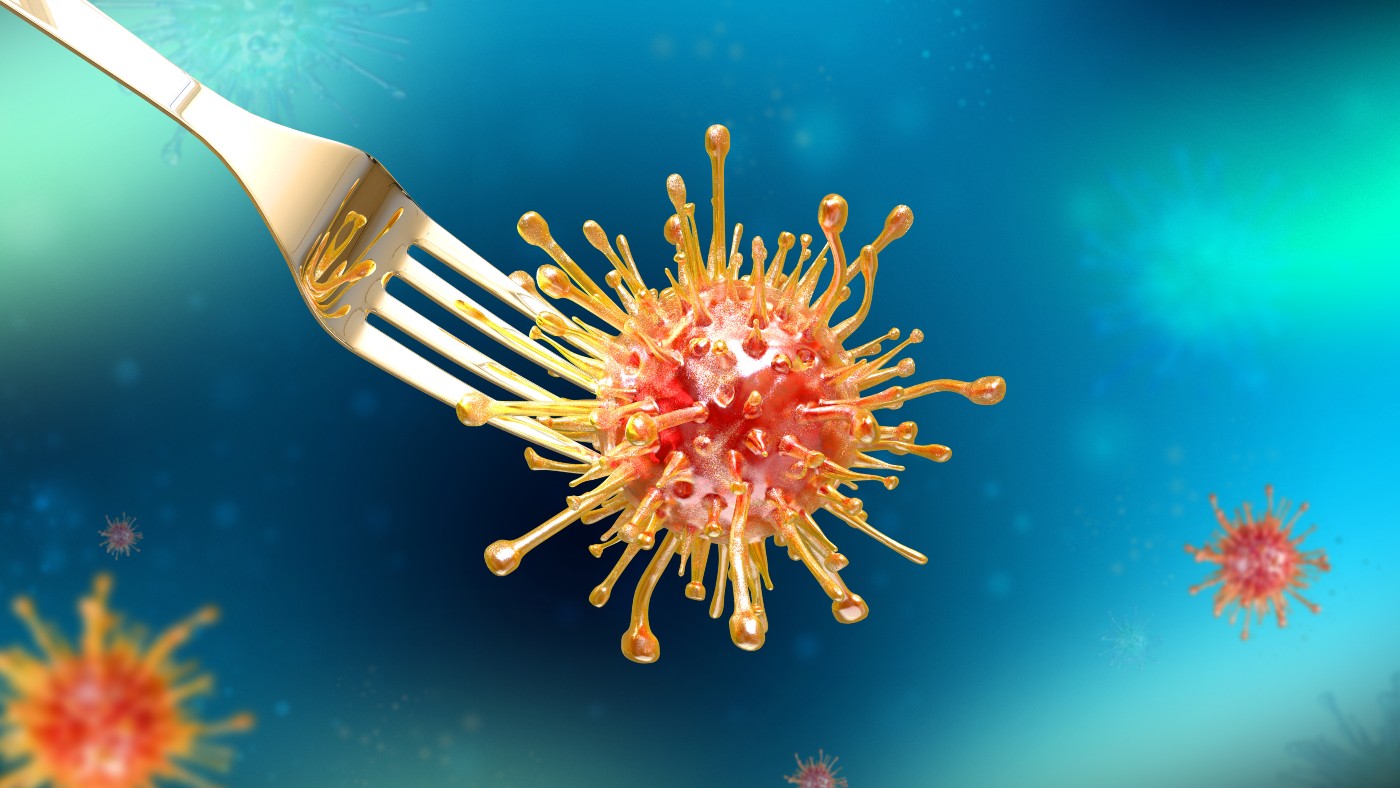Britain's food poisoning problem
Public urged to 'wake up' as hospital admissions for food-related illnesses reach new highs

A free daily email with the biggest news stories of the day – and the best features from TheWeek.com
You are now subscribed
Your newsletter sign-up was successful
The public is unwittingly playing "Russian roulette with food", an expert has warned.
Hospital admissions for food-related illnesses salmonella, E. coli and campylobacter have reached record highs in England, latest NHS data shows. And Tim Lang, professor of food policy at City University, told The Guardian that there would be more cases until the British public "wakes up" to the risk of food poisoning.
'Much more than a dodgy stomach'
Admissions for salmonella infections reached an unprecedented 1,468 in England between April 2022 and March 2023, equivalent to three admissions for every 100,000 people. Cases of E coli have also soared, and admissions for bacterial infection campylobacter last year reached more than 4,340, a rate of nine in 100,000 people – up from three in 100,000 in 2000.
The Week
Escape your echo chamber. Get the facts behind the news, plus analysis from multiple perspectives.

Sign up for The Week's Free Newsletters
From our morning news briefing to a weekly Good News Newsletter, get the best of The Week delivered directly to your inbox.
From our morning news briefing to a weekly Good News Newsletter, get the best of The Week delivered directly to your inbox.
While many people have suffered the "stomach cramps, nausea and rushing to the loo" associated with food poisoning, said Metro, for some, it "turn into something much more than a dodgy stomach".
In December, health officials announced that a person had died as a result of an outbreak of E. coli linked to an artisan cheese, with at least 30 confirmed cases across England and Scotland. That same month, the Food Standards Agency announced an investigation after more than 200 people became ill with a strain of salmonella "linked to poultry and eggs imported from Poland", said Sky News.
Experts are also trying to explain the overall rise in food poisoning cases. The FSA "puts it down to improved detection", said The Guardian. But Professor Lang told the paper that the increases had been fuelled by a "weakening of state attention and regulatory focus on food hygiene and safety". The problem has been "worsened by Brexit and local authority cuts, and a fragmentation of the system of food safety governance", he said.
The "squeeze" on local authority budgets and a worker shortage has seen the number of food standards officers fall by 45% in the last decade, said Metro, "leaving the sector stretched thin".
A free daily email with the biggest news stories of the day – and the best features from TheWeek.com
Tina Potter, head of incidents at the FSA, has also linked some cases to contaminated products being used in meals in restaurants and cafes. The watchdog is "asking local authorities to remind food businesses about the importance of good hygiene practices", she said in a food alert about last year's salmonella outbreak.
'We can all keep ourselves safe'
Many people get food poisoning as a result of "food prepared or stored incorrectly at home", said the European Food Information Council, but "the good news is that many cases are mild" and "we can all keep ourselves safe" by following simple guidelines.
"Our hands, kitchen utensils, and dishcloths all carry microorganisms", so handwashing and keeping food preparation surfaces clean is important. The non-profit organisation also advises keeping raw and cooked foods separate, because the former can contain invisible disease-causing microbes that can be transferred through practices such as "chopping salad vegetables with a knife that was previously used to chop raw meat".
Ensure that fruit and veg have been thoroughly washed, and that all meat and fish is fully cooked before eating. Cooked leftovers should be stored as soon as possible after cooling, in a fridge kept at between 0C and 5C, and consumed within two to three days.
If you do get food poisoning, said the NHS, "the most important thing is to have lots of fluids, such as water or squash, to avoid dehydration". Symptoms, which include nausea, diarrhoea, vomiting, stomach cramps and a high temperature, "usually pass within a week".
Chas Newkey-Burden has been part of The Week Digital team for more than a decade and a journalist for 25 years, starting out on the irreverent football weekly 90 Minutes, before moving to lifestyle magazines Loaded and Attitude. He was a columnist for The Big Issue and landed a world exclusive with David Beckham that became the weekly magazine’s bestselling issue. He now writes regularly for The Guardian, The Telegraph, The Independent, Metro, FourFourTwo and the i new site. He is also the author of a number of non-fiction books.
-
 How to Get to Heaven from Belfast: a ‘highly entertaining ride’
How to Get to Heaven from Belfast: a ‘highly entertaining ride’The Week Recommends Mystery-comedy from the creator of Derry Girls should be ‘your new binge-watch’
-
 The 8 best TV shows of the 1960s
The 8 best TV shows of the 1960sThe standout shows of this decade take viewers from outer space to the Wild West
-
 Microdramas are booming
Microdramas are boomingUnder the radar Scroll to watch a whole movie
-
 ‘Longevity fixation syndrome’: the allure of eternal youth
‘Longevity fixation syndrome’: the allure of eternal youthIn The Spotlight Obsession with beating biological clock identified as damaging new addiction
-
 Europe’s apples are peppered with toxic pesticides
Europe’s apples are peppered with toxic pesticidesUnder the Radar Campaign groups say existing EU regulations don’t account for risk of ‘cocktail effect’
-
 Mixed nuts: RFK Jr.’s new nutrition guidelines receive uneven reviews
Mixed nuts: RFK Jr.’s new nutrition guidelines receive uneven reviewsTalking Points The guidelines emphasize red meat and full-fat dairy
-
 Stopping GLP-1s raises complicated questions for pregnancy
Stopping GLP-1s raises complicated questions for pregnancyThe Explainer Stopping the medication could be risky during pregnancy, but there is more to the story to be uncovered
-
 Choline: the ‘under-appreciated’ nutrient
Choline: the ‘under-appreciated’ nutrientThe Explainer Studies link choline levels to accelerated ageing, anxiety, memory function and more
-
 Ultra-processed America
Ultra-processed AmericaFeature Highly processed foods make up most of our diet. Is that so bad?
-
 Tips for surviving loneliness during the holiday season — with or without people
Tips for surviving loneliness during the holiday season — with or without peoplethe week recommends Solitude is different from loneliness
-
 More women are using more testosterone despite limited research
More women are using more testosterone despite limited researchThe explainer There is no FDA-approved testosterone product for women